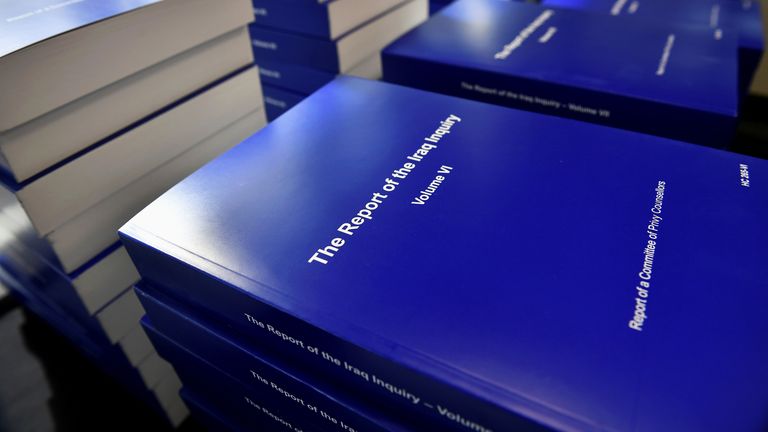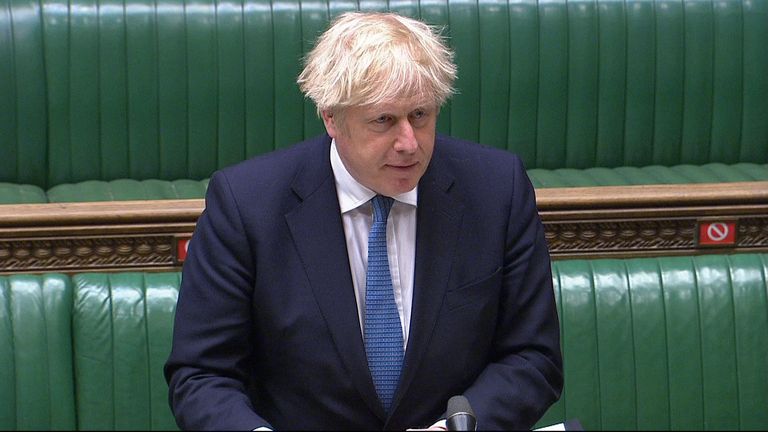The inquiry into the Iraq War cast a huge shadow over British politics. Over a year of hearings dominated the agenda.
The 2.6 million-word Chilcot report released five years later, however, made comparatively little impact on day-to-day politics, dissolving like fog in bright sunlight.
There were similarities with the Hutton report into the circumstances of the death of scientist Dr David Kelly and the Leveson report into the conduct of the media following the phone-hacking scandal.
The same was also true of the RHI inquiry in Northern Ireland which ultimately found no evidence of corruption, but not until DUP politicians had seen months of disruption and pressure as a result of the hearings.
In most of these cases, the reports came after the political issues were live and when significant characters had moved on.
The nuanced nature of the final conclusions – no overt “guilty” verdict demanded by campaigners – cushioned the impact of the final report.
So how much does a COVID inquiry matter when is not due to begin until spring 2022 and may not report until after the next general election? Or possibly even the one after that? In short, enormously.
The drama – and the moments of political peril in an inquiry – came from the disclosures of text messages, emails and, critically, the appearances at the witness stand.
Tony Blair under oath in the Chilcott inquiry. Jeremy Hunt and Rupert Murdoch during the Leveson inquiry. Alistair Campbell during the Hutton inquiry.
This probe could provide such moments in the run-up to a 2023 general election.
Indeed, Boris Johnson may find his inquiry into the government’s handling of coronavirus will turn out to be a juggernaut, perhaps one that will spiral out of control.
A full-blown public inquiry – set up under the terms of the 2005 Inquiry Act with powers to compel witnesses to tell the truth under oath – will likely cover a huge range of topics.
Did the country lockdown too late last March? Was SAGE too secretive? Were the right people involved in decisions? Was the tiers system fit for purpose? Why were there gaps on PPE? Were contracts given to donors and friends of Conservatives?
Was the data presented to the public robust? Why did the prime minister resist locking down a second time so long? Was the system of devolved leaders taking control of aspects of the response fit for purpose?
Was London treated differently from the rest? Was the country ready for this pandemic, and will it be ready for the next one?
On each issue, and on Mr Johnson’s approach overall, the public will form a judgement based on whatever the inquiry can force into the public domain.
They will not wait for the final view of the inquiry chair – and the issuing of learned, considered conclusions – to make up their minds.
Mr Johnson certainly seemed able to make up his mind on the basis of the public hearings alone about Mr Blair in 2004, after the inquiry into his conduct in the run-up to the Iraq War and death of Dr Kelly.
Writing in the Daily Telegraph at the time, Mr Johnson condemned the report as a whitewash, deciding the evidence in the hearings alone were enough to damn Mr Blair, the then prime minister.
He wrote: “So there he goes again. The cordite is carried off by the breeze. The dust settles and out of the crater creeps the prime minister, beaming his chipmunk grin.
“He acknowledges the cheers of his back benches, flicks an invisible speck from his irreproachable Paul Smith sleeve and saunters off back to Downing Street. It is just flipping unbelievable. He is a mixture of Harry Houdini and a greased piglet. He is barely human in his elusiveness.
“Nailing Blair is like trying to pin jelly to a wall. For weeks we have been told that his extermination at the hands of Hutton has been as predetermined as the convergence of the Titanic and the iceberg. And now what? The judge has decided that the prime minister behaved with complete honour and candour throughout.
“Blair, Hoon, Scarlett, the whole lot of them, have been sprayed with more whitewash than a Costa Brava timeshare. Hutton has succumbed to blindness of Nelsonian proportions. As snow-jobs go, this beats the Himalayas.
“With unerring inaccuracy, he has trained his guns at exactly the wrong target. He has blasted the BBC when, as I will repeat to my dying day, it was Blair, Campbell and Hoon who were the guilty men.
“How, you may be asking, do I dare to dissent from the opinions of the judge? I dissent because I have read the evidence presented to Hutton, and I put it to you that the judge is noble, learned and talking through the back of his neck.”
It would be interesting to know if Mr Johnson today still agrees with the approach of his 2004 former self.














